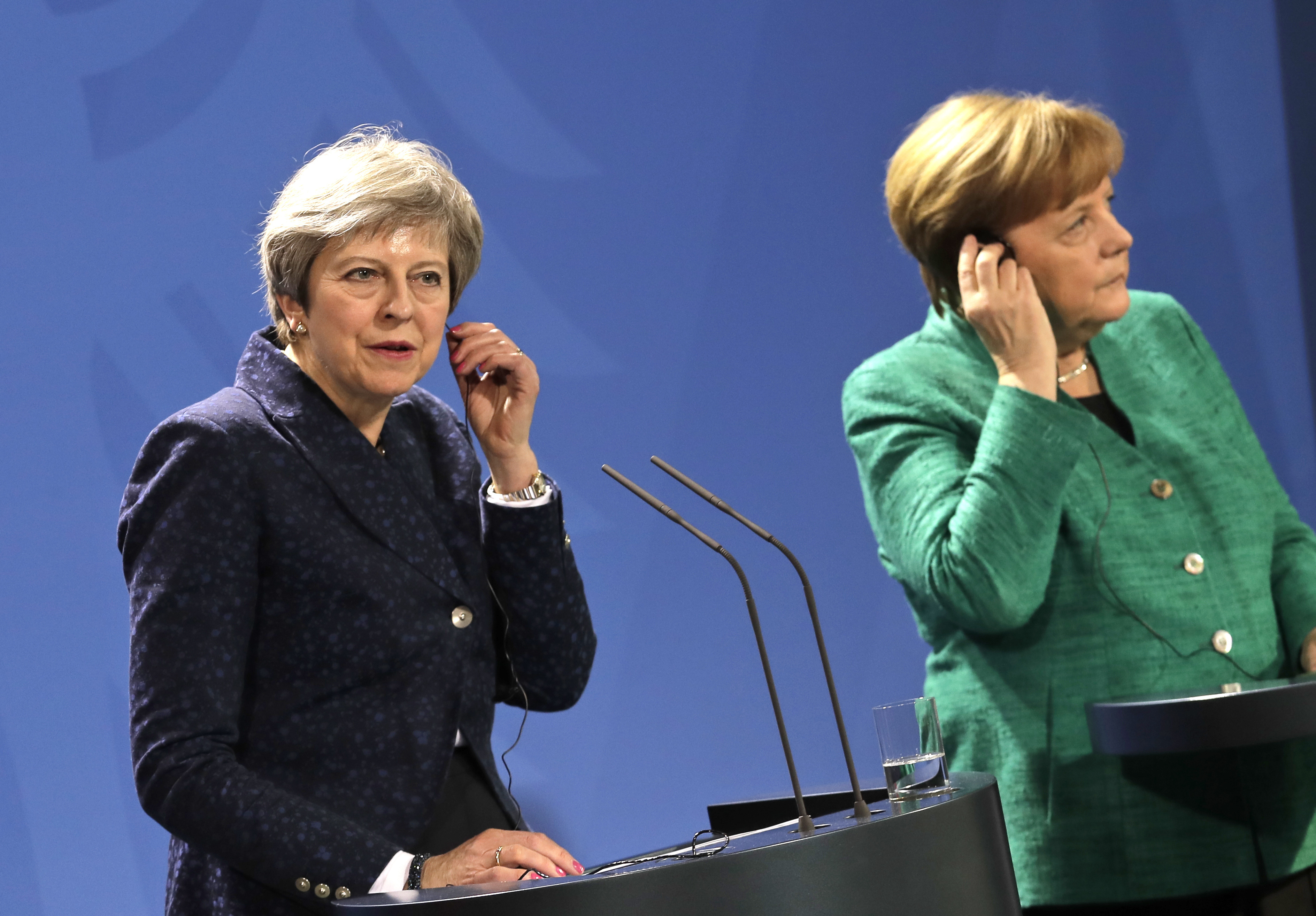
By FRANK JORDANS
Associated Press
BERLIN (AP) — British Prime Minister Theresa May said Friday that London wants a bespoke arrangement with the European Union once it leaves the bloc next year, but offered no fresh insight into what her government might offer to clinch a deal with Brussels in the coming months.
Speaking after a meeting with German Chancellor Angela Merkel in Berlin, May stressed the importance of economic ties between Britain and Germany that she said “secures and generates hundreds of thousands of jobs in both countries.” “I want to ensure that U.K. companies have the maximum freedom to trade and operate within German markets and for German businesses to do the same in the U.K.,” May said.
Concern has been growing among European business leaders that Britain’s exit from the EU will be far from seamless, causing considerable disruption to companies on both sides of the Channel. “What we’re looking at is, I believe, a comprehensive and ambitious partnership, one that isn’t based on an existing model,” insisted May, without elaborating.
Her remarks appeared to chime with comments earlier Friday by Michel Barnier, the European Union’s top negotiator, who said Britain was “closing the door” on several tried and tested arrangements with non-EU countries such as Norway and Canada.
Barnier told an audience in Munich he still believes in an orderly Brexit, rather than a “no deal” sought by some anti-EU hardliners in Britain. But he said companies should use the time until March 2019 to prepare for the consequences of Britain’s departure, many of which were being underestimated.
Speaking at the same event as Barnier, the economy minister of Bavaria — home to major German companies such as Siemens and BMW — said it was important for businesses to get certainty about their investments in Britain going forward.
“New customs duties and non-tariff trade barriers are simply poison for our economy, poison for jobs and poison for our prosperity,” the minister, Ilse Aigner, said.



















